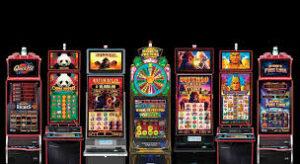The Risk of Addiction in Slot Machine Games
Slot machine games are immensely popular, especially among adults in casinos and on online platforms. Developed by large companies like International Game Technology (IGT) and numerous online developers, these games are widely accessible. Unfortunately, slot machine games pose a significant risk for addiction due to their design, which leverages randomness and the illusion of control. Compared to other chance-based games like poker, slot machines are more likely to foster addictive behavior because they offer less player agency and rely heavily on pure luck.
The Illusion of Control
Slot machines engage players with bright visuals, enticing sounds, and the promise of big wins. The randomness inherent in these games plays a crucial role in their addictive potential. Players often attribute their experiences to luck, contrasting sharply with games like poker, where skill and strategy significantly influence outcomes.
Slot machines exploit psychological principles to keep players engaged. For example, the concept of near misses, where the reels stop just short of a winning combination, gives players the illusion that they were close to winning, encouraging continued play. Additionally, the intermittent reward schedule, where wins are unpredictable and infrequent, is highly effective in reinforcing behavior, similar to how variable rewards keep people engaged on social media platforms.
In comparison, poker involves a mix of skill and chance, allowing players to improve their odds through strategy and understanding of the game. This sense of control can mitigate the risk of addiction. However, in slot machines, the outcome is entirely random, and no amount of skill or strategy can influence the result. This pure reliance on luck can lead players to believe they can eventually win if they keep playing, a belief central to gambling addiction.
Learning from Course Content
Using the Mechanics-Dynamics-Aesthetics (MDA) framework, the mechanics of slot machines are straightforward: the player places a bet, spins the reels, and waits for the outcome. The dynamics involve the player’s interaction with the machine, experiencing wins, losses, and near misses. The aesthetics—the bright lights, sounds, and themes—create an exciting and engaging experience. These elements work together to keep players engaged for longer periods than intended.
Randomness and reward schedules are critical to understanding why slot machines are so addictive. Randomness is calibrated to ensure that while players experience frequent small wins, they also encounter enough losses to keep the casino profitable. This randomness feeds into the addictive nature of the game by creating an unpredictable environment where players constantly chase the next win.
Evidence and Comparisons
Visual and auditory cues in slot machines are designed to be highly stimulating. Bright, flashing lights and celebratory sounds accompany even small wins, reinforcing the player’s behavior. Memorable moments of success, such as hitting a jackpot, can overshadow the many losses that typically occur, leading players to overestimate their chances of winning and driving addictive behavior.
In contrast, games like poker require players to read opponents, manage their bankroll, and make strategic decisions based on incomplete information. While luck plays a role, especially in the short term, skill and strategy significantly influence long-term success. This blend of luck and skill creates a more balanced gaming experience that may be less likely to result in addiction compared to the pure chance of slot machines.
Conclusion
Slot machine games, with their reliance on randomness and psychological manipulation, pose a significant risk for addiction. Their design exploits principles of behavioral psychology to keep players engaged, often leading to problematic gambling behavior. Compared to games like poker, which involve a mix of skill and luck, slot machines offer no real control over outcomes, making them particularly dangerous for those prone to gambling addiction. Understanding the mechanics, dynamics, and aesthetics of these games is crucial in addressing their potential for addiction and developing strategies to mitigate their harmful effects.




